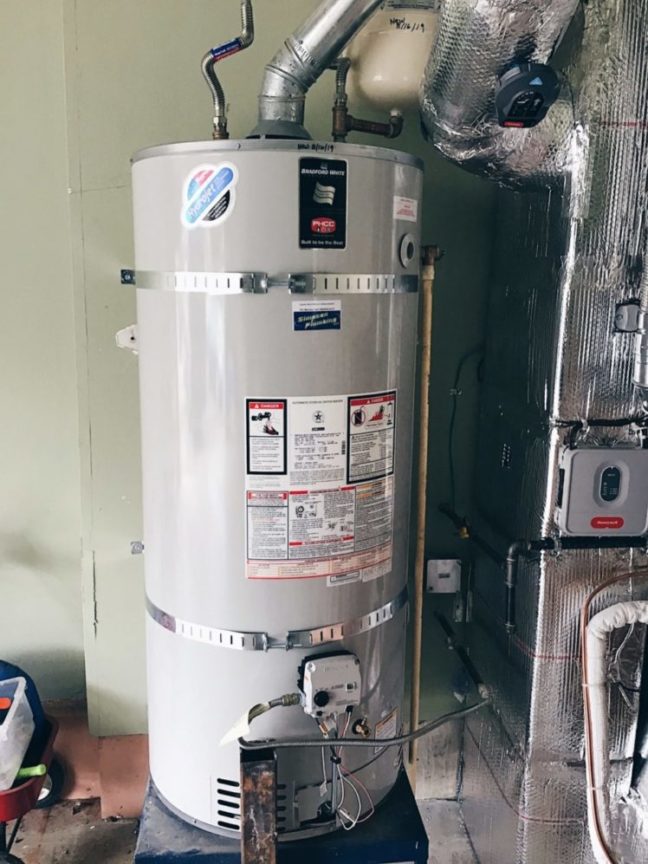Don’t you love a nice hot shower in the morning, or a bath in the evening? We think the answer is probably yes all around. That’s all thanks to water heaters, which are one of the home’s necessities.
There are some installation requirements that it’s important to be aware of when getting a water heater installed or replaced. Why? Water heaters are powerful (after all, they do heat water for your entire house) and can cause big-time property damage if not installed correctly. However, Simpson Plumbing can take care of that for you, as installing water heaters is one of our main services. With that said, here are the top five things every home owner should review with a plumber.
What You Need To Know About Water Heater Installation
- Type of tank: There are three main types of water heaters, including conventional, hybrid, and tankless. Conventional water heaters use gas/electricity to keep a full supply of hot water. Hybrids use air pump technology to heat water and tankless water heaters heat water on demand.
-
Size of tank: This is determined based on the size of your home along with the current and future use of water.
-
Location of tank: Where you put the water heater is just as important as having one. Due to the risk of carbon monoxide poisoning, water heaters are not to be installed in bedrooms, closets, or bathrooms. A perimeter of at least 24-in is required around the water heater, and if it is placed in the garage, there must be a protective barrier before it. If the water heater is inside or somewhere damage can occur, a pan is to be placed underneath the water heater, connected to a drain line. Don’t worry, our technicians can always guide you in where to place a water heater.
-
Electrical/gas/other requirements of tank: Everything must be exact when it comes to the electrical aspects. So gas and water pipes need to be bound with wire and clamps to the ground system. Moreover, depending on the pressure in your house, the plumber will advise whether a pressure regulating valve is necessary or not. Expansion tanks are another thing (there’s a lot, we know!). When the water heats up, it expands and the water pressure increases. If a home has a closed plumbing system, the water can’t flow back to the main water supply system because it’s blocked. This causes unnecessary strain on the water heater and can decrease its lifespan. The expansion tank holds that extra water that expands as a result of heating.
-
Warranty: There are various warranty options to consider, depending on how long you want your water heater to last. These should be discussed with the plumber.
Other Things to Consider
A permit may be necessary to replace a hot water heater, depending on where you live. Some counties require them, others don’t; the plumbing technician will be able to tell you.
If you live in the Pacific Northwest, earthquake straps are a definite requirement, in order to secure the water heater to prevent it from tipping over in case of a natural disaster.
Consider insulating pipes that transport your water. That can save you money and energy. When pipes that transport fluids, such as water aren’t insulated, it can create temperature inconsistency. In other words, your water heater would need to take more energy to heat up water, than if it were a bit warmer already. And that’s more money out of your pocket. Pipe insulation helps mitigate the difference in water temperatures.
What Simpson Plumbing Can Do For You
Now that you know about some of the requirements, you can be confident that as your plumber we’ll take care of all of the necessary details. Being in the plumbing industry for over 30 years, we know the ins and outs and are ready to answer any questions you may have and get the work done.
Contact us at (360) 834-5311 and let us know how we can be of service to you.


 About Us
About Us  Services
Services  Plans
Plans  Commercial
Commercial